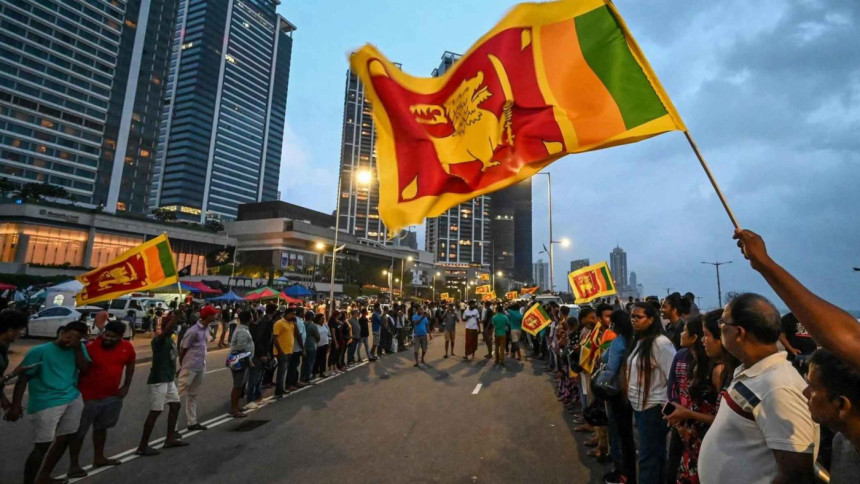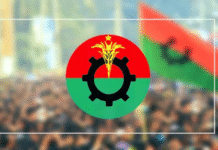
India’s Neighbourhood First Policy once again faces a challenge in view of the economic meltdown and consequent political turmoil in Sri Lanka. India’s approach in dealing with the crisis in the island nation has been calibrated and cautious.
There are two components of the crisis in Sri Lanka: one on the economic front, and the other on the political one. India has been generous in opening its purse strings to bail out Sri Lanka not only with money, but also by deferring loan repayments and currency swap as well as supplies of fuel and medicines.
But the real task cut out for India lies in tackling the political dimension. It is here that India has been extremely cautious and chosen not to weigh in on Sri Lanka’s ongoing political crisis. It made an attempt to distance itself from the Rajapaksa family-led Sri Lankan government, pledging support to the “people of Sri Lanka.”
A glimpse of the challenge that India faces is given in two Twitter comments by the Indian High Commission in Sri Lanka on May 10 and 11. On May 11, the diplomatic mission refuted “speculative” Sri Lankan media reports about India sending its troops to Colombo and said “these reports and such views are not in keeping with the position of the Government of India.” The categorical denial by the high commission came a day after it dismissed social media speculations in Sri Lanka that former Prime Minister Mahinda Rajapaksa and his family members had fled to India as “fake and blatantly false.” This is a phenomenon not restricted to Sri Lanka; it is applicable for all its other South Asian neighbours where rumours, speculations and weird theories relating to India abound the moment any crisis breaks out there. This is a problem India has faced for decades and will have to navigate in future, too, through consistent engagement with the South Asian countries at all levels. Perhaps, this is the “price” India will always be asked to pay for being the biggest country in South Asia.
Bagchi also took the occasion to recall India’s economic aid to Sri Lanka to help the island nation tide over its worst financial crisis, and placed the assistance in the context of India’s Neighbourhood First Policy. This year alone, India has extended support worth over USD 3.5 billion to the people of Sri Lanka for helping them overcome their current difficulties. In addition, the people of India have provided assistance to mitigate the shortages of essential items such as food and medicine, he pointed out. India’s economic support to Sri Lanka also includes a USD-1-billion credit line for essential imports, a USD-500-million credit line for fuel, debt payment postponement, and a USD 400 million currency swap that has been extended until mid-July.
The MEA spokesman’s remarks have been broadly interpreted as India’s keenness to see a continuance of the democratic process in Sri Lanka and a gentle nudge against anything, including military intervention, contrary to that process. The mention of the words “democratic processes” refers to India’s desire for seeing peaceful protests and possible elections and discomfiture with the Sri Lankan government’s handling of the political crisis.
There was a time when Mahinda was chummy with the Chinese and handed over the strategic Hambantota port to a Chinese company to run. However, on his return as prime minister in 2019, with brother Gotabaya as president, India quickly reached out to Colombo to reset bilateral relations.
With the Rajapaksas now down in the dumps amid Sri Lanka’s worst economic crisis, India has measured its actions with extreme care. New Delhi did not want to give any impression that its generous aid to Colombo at the time of an economic crisis was reflective of support for the Rajapaksas or their handling of the economy. Instead, India made it clear that its assistance in cash and kind was directed at the people of Sri Lanka. Caution will be the buzz word in India’s Sri Lanka strategy till political stability returns to the island nation.
Pallab Bhattacharya is a special correspondent for The Daily Star. He writes from New Delhi, India.


 For all latest news, follow The Daily Star’s Google News channel.
For all latest news, follow The Daily Star’s Google News channel.







